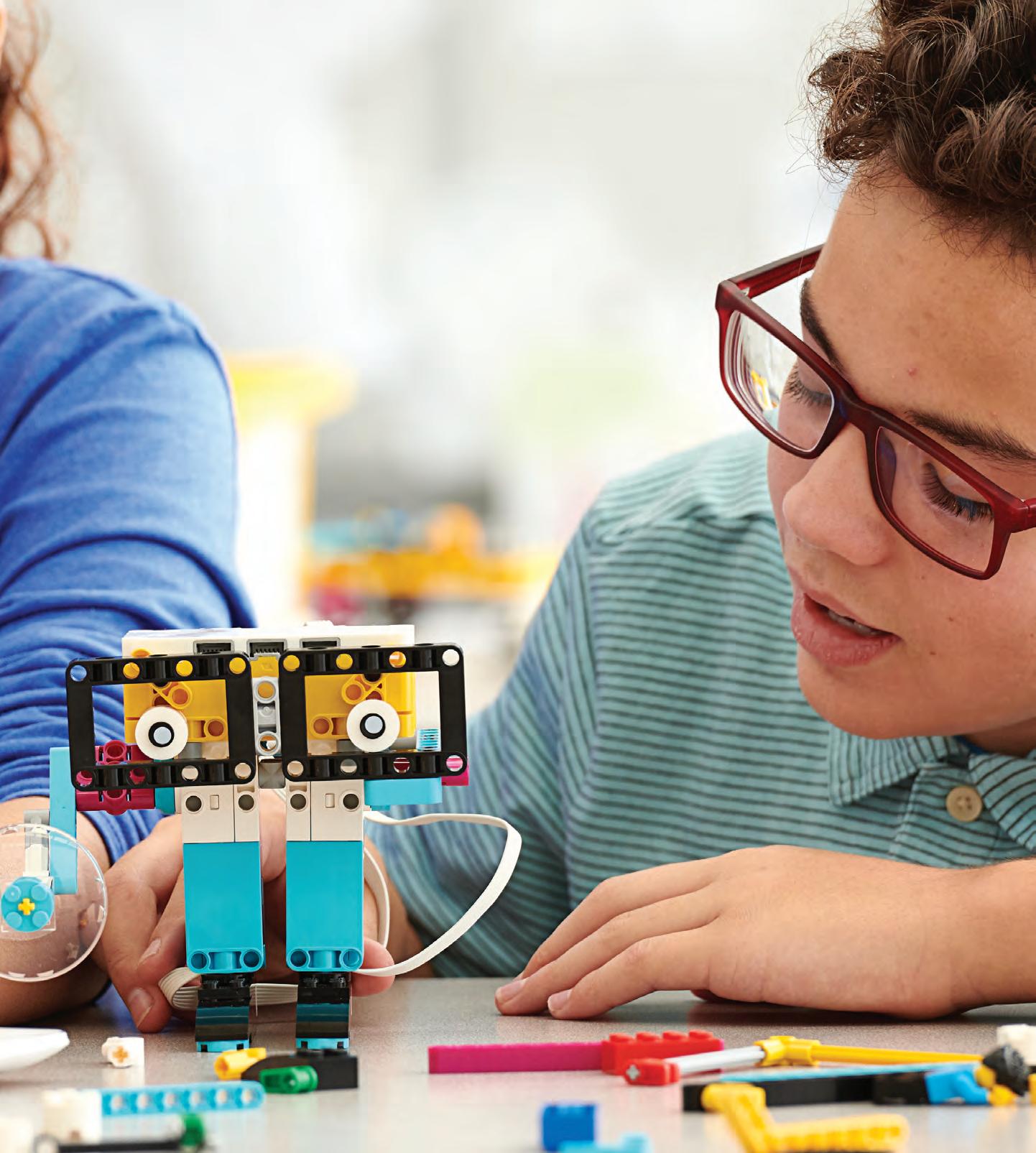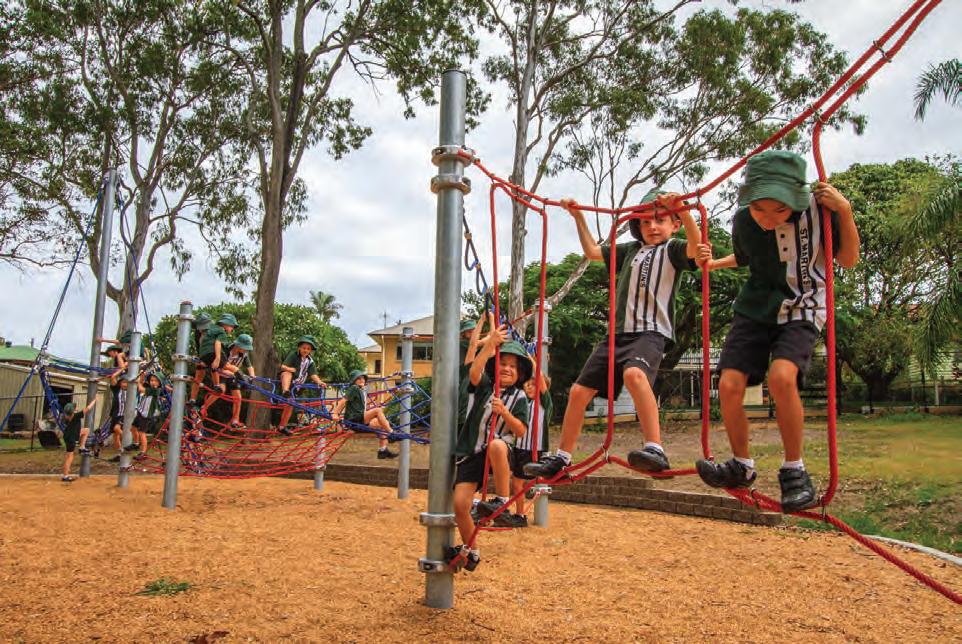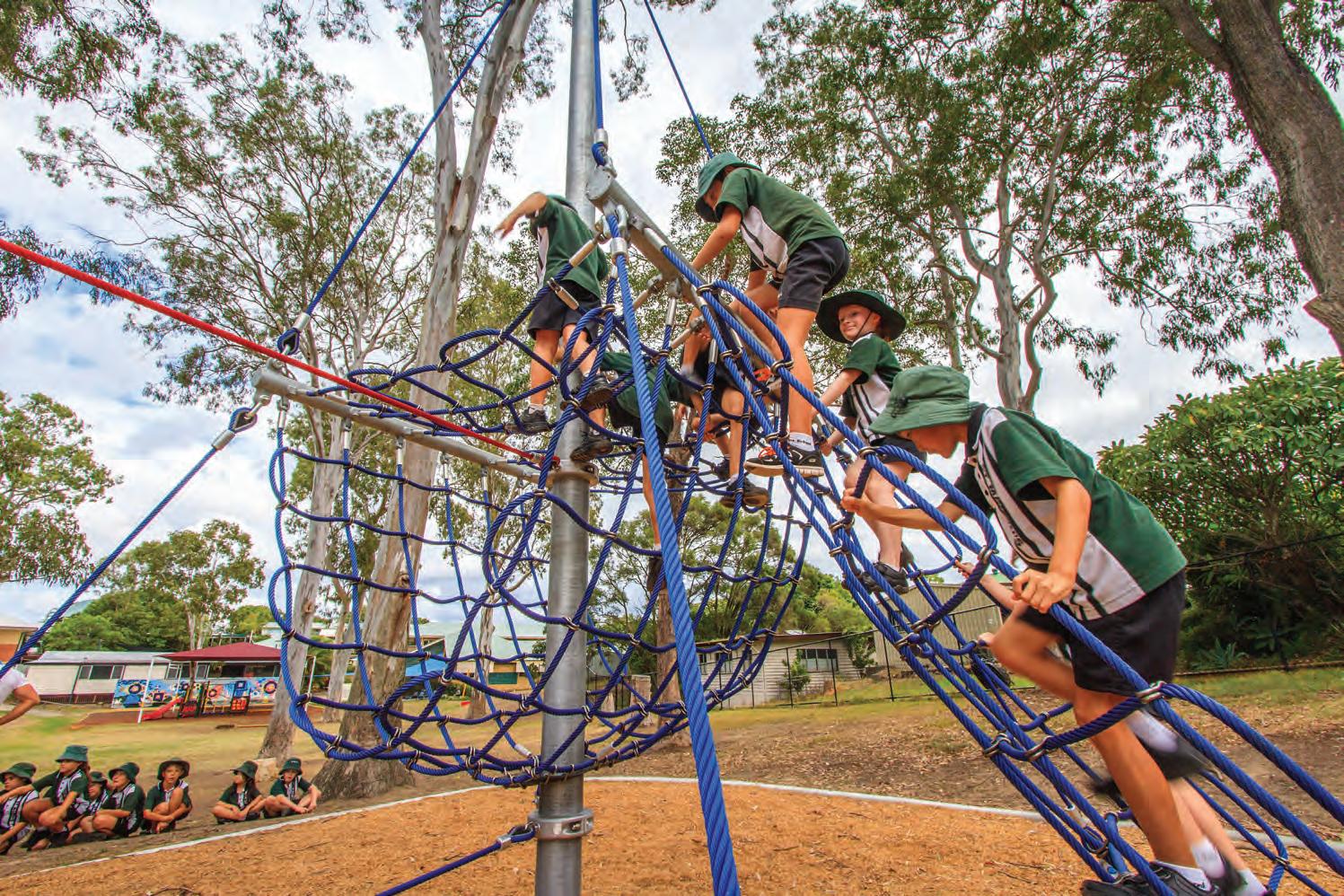
9 minute read
News
AITSL appoints new CEO
Following a comprehensive national and international search, the Australian Institute for Teaching and School Leadership (AITSL) has appointed Mark Grant as its new CEO.
He joined the institute in mid-April, following his most recent position of Executive Director, Leadership and High Performance at the Department of Education, NSW.
According to AITSL, Mr Grant brings to the new role a considerable breadth and depth of operational experience, particularly at the school, regional and state level, which has been successfully combined with an acknowledged track record of delivering results at scale utilising strong, strategic management at senior executive levels.
His career includes direct experience in schools, both as a teacher and school leader. During his time as principal at three NSW schools, he drove improvement initiatives to benefit student growth and outcomes.
Most recently, Mr Grant has led complex, integrated strategic work for the NSW public school system. This has included school improvement measures; teacher quality, induction, professional development and leadership support for all school-based staff; and needs-based funding budgets to all schools.
AITSL Board Chair, Laureate Professor John Hattie said the skills and experience Mr Grant brings to the role will greatly benefit AITSL, the teaching profession and Australian students.
“The recruitment process for a new AITSL CEO attracted many excellent candidates and we are delighted to have secured a CEO of Mark’s calibre,” said
Laureate Professor Hattie.
“We are confident Mark will build on AITSL’s excellent reputation and relationships as we continue working with the Federal Government, as well as all state and territory governments, education systems and sectors, and others, to empower teachers and school leaders to have the maximum impact on the learning of students nationally.
“I would like to give our sincere thanks to AITSL’s Deputy CEO Mr Edmund Misson, who acted in the role of CEO during the first quarter of 2019, as well as the AITSL executive and staff who have continued delivering on our important program of work.”
In new role, Mr Grant said he is looking forward to leading, initiating and building on AITSL’s achievements, driving national education reform to secure a high-quality education system on par with international standards.
“I have a deep commitment to making a broad and significant contribution to education, and I am looking forward to making a difference to the lives of children and young people across the nation,” he said.
Mr Grant succeeds Lisa Rodgers, who left the company in January 2019 to take up the position of Secretary at the Department of Education and Training in Western Australia.
As new CEO, Mr Grant will work closely with the AITSL Board, executive and staff to realise AITSL’s strategic plan, and progress important work on national education reforms, and supporting teachers and school leaders to help them meet professional standards. EM
Australian Made launches new educational kits
The Australian Made Campaign has launched a new collection of educational resources that aim to inform students about our manufacturing history, Australian inventions and the social and economic benefits of buying locally made and grown products.
Designed for the primary and middle years, the resources feature facts, interactive games, posters, lesson plans and activity sheets.
“Buying Australian Made products helps to create Aussie jobs and strengthens our local manufacturing, agricultural industries, communities and economy,” said Australian Made Chief Executive, Ben Lazzaro.
“It is important to teach students about the Australian Made, Australian Grown logo, and the positive flow-on effects that buying locally-made products have. These new resources will help teachers and parents educate our future leaders about the importance of Australian manufacturing, and empower them to make educated purchasing decisions in the future.”
Designed in conjunction with the ‘For Teachers for Students’ education website, the new Australian Made resources are curriculum-linked and created to provide smooth integration into the classroom learning environment.
According to the Australian Bureau of Statistics, Australia’s manufacturing industry currently contributes around $100 billion to Australian GDP annually, and employs around 900,000 Australians.
Greg Harten, Owner of HART Sport, an Australian Made licensee that manufactures sporting equipment for schools, clubs, fitness centres and government departments, explained the importance of manufacturing in Australia and the need for education resources.
“Local manufacturing matters. It ensures that employment and skills stay in Australia. Domestic manufacturing also drives innovation and is the basis for research and development – all things that help maintain our standard of living,” he said. EM
Build confidence, STEAM skills, and new inventions. Build confidence, STEAM skills, and new inventions.

INTRODUCING LEGO ® EDUCATION SPIKE ™ PRIME. LEGO ® Education SPIKE ™ Prime is a powerful STEAM learning solution for years 5-8 that combines LEGO bricks, Scratch programming language, and a programmable multiport HUB to help every learner become a confident learner. LEGOeducation.com.au/SPIKEprime INTRODUCING LEGO ® EDUCATION SPIKE ™ PRIME. LEGO ® Education SPIKE ™ Prime is a powerful STEAM learning solution for years 5-8 that combines LEGO bricks, Scratch programming language, and a programmable multiport HUB to help every learner become a confident learner. LEGOeducation.com.au/SPIKEprime

+ = Original Playground /
Budget ($50,000) Matched Funding ($25,000)



New Playground ($75,000)
NAPLAN 2018 National Report findings
The 2018 NAPLAN National Report, published by the Australian Curriculum, Assessment and Reporting Authority (ACARA), has revealed significant cumulative gains in various domains since the testing was introduced in 2008.
This confirms the initial findings of the preliminary information released in August 2018.
“The report confirms that since 2008 there have been statistically significant gains in several domains and year levels, particularly at the primary school level,” said ACARA CEO, David de Carvalho.
This national report provides further information to the August 2018 summary release including comparisons of performance by gender, Indigenous status, language background other than English, parental occupation, parental education, and school location: • Indigeneity: Since 2008, there have been some significant cumulative gains in some domains and year levels for Indigenous students, including reading (Years 3 and 5), spelling (Years 3 and 5), grammar and punctuation (Years 3, 5, 7 and 9) and numeracy (Years 3, 5 and 9). • LBOTE: Compared with 2008, there have been some significant cumulative gains in some domains and year levels for students with language background other than English (LBOTE), including reading (Years 3 and 5), grammar and punctuation (Years 3 and 7), spelling (Years 3 and 5) and numeracy (Year 5). • Gender: Compared with 2008, there have been some significant cumulative gains in some domains and year levels for female students, including reading (Years 3 and 5), spelling (Year 5), grammar and punctuation (Year 3) and numeracy (Years 5 and 9). Similarly, there have been some significant cumulative gains in some domains and year levels for male students, including reading (Years 3 and 5), spelling (Years 3 and

5), grammar and punctuation (Year 3 and 7) and numeracy (Year 5 and 9).
In confirming the preliminary results released in August, at the national level, compared with 2008: • The performance of Australian students in Years 5 and 9 – numeracy, Years 3 and 5 – reading, Years 3 and 5 – spelling, and Years 3 and 7 – grammar was significantly above the NAPLAN 2008 average. • The writing test results in Years 5, 7 and 9 were below those observed in the base year (2011).
Compared with 2017 results, there were no statistically significant changes in any of the NAPLAN test domains.
Following the release of these results, Federal Minister for Education, the Hon Dan Tehan MP, welcomed the news that the performance of Australian students has improved since 2008.
Though he added, “The decline in writing skills in years 5, 7 and 9 since 2011 is concerning. In this year’s Budget we provided a further $9.5 million to deliver new online courses and resources for the teaching of mathematics and phonics because literacy and numeracy are the foundational skills of an education.”
“There has been fantastic improvement in the results of Indigenous students but more needs to be done to close the gap, that is why the Morrison Government is making Indigenous education a focus of its efforts,” said Minister Tehan.
The My School website has also been updated with the data from the latest round of NAPLAN tests, along with other information, including school profile information.
With 2018 being the first year of the transition to NAPLAN Online, the My School website has been updated with NAPLAN data as in previous year s, with additional information indicating whether the school did the NAPLAN test on paper or online. EM
Paying it forward for mental health
Grounded in positive psychology and mindfulness-based research, the Grow Your Mind program has sparked a pay it forward movement, where schools and parents are donating the mental health kits to other schools and families in need.
The mental health resources for schools and homes were developed by primary school teacher Alice Peel and acupuncturist Kristina Freeman; and aim to teach students about their brains, emotions and ways they can flourish.
The movement emerged after their initial crowdfunder, which raised over $85,000 so that the kits could be produced and provided to a variety of low socio-economic schools.
The pair also designed a teacher wellbeing course designed with aim of better supporting school staff to not only teach emotional wellbeing but to know how to look after their own mental health.
The Grow Your Mind resources are currently in use at over 70 schools throughout NSW, Australia and abroad; including both government and independent schools.
Parents and grandparents have gifted mental health kits to their children’s schools and community members have enabled some homes and schools in need to receive Grow Your Mind resources.
Through the Grow Your Mind program, children are taught about the contagious nature of kindness, compassion and generosity, which has been demonstrated throughthe pay it forward movement.
It began with Woollahra Public gifting Grow Your Mind school kits to Mascot Public. A few weeks later Montessori East donated the Grow Your Mind teacher wellbeing workshop to La Perouse Public.
In term 2 of 2019, professional volunteers from Atlassian will be visiting 10 primary schools to donate Grow Your Mind resources.
For co-founders Ms Peel and Ms Freeman, these acts of generosity are incredibly uplifting. They said that to see primary schools now taking on the role of giving to others has sparked a great level of joy and hope in both of them. They feel strongly that poor mental health does not discriminate and therefore believe that access to their resources shouldn’t discriminate either. EM








